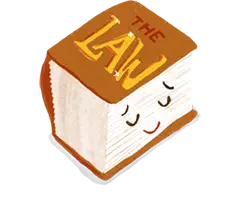Topic
Treaty of Waitangi
This page contains different parts of laws about Treaty of Waitangi, within the topic of Māori affairs.

Important laws about Treaty of Waitangi
Conservation Act 1987
Following the Treaty of Waitangi principles in New Zealand's conservation law
4: Act to give effect to Treaty of Waitangi
Conservation Act 1987
Who can be on the New Zealand Conservation Authority team
6D: Membership
Conservation Act 1987
Who can be on a Conservation Board to help protect New Zealand's environment?
6P: Membership of Conservation Boards
Conservation Act 1987
People chosen to protect Lakes Manapouri, Monowai, and Te Anau and advise the Minister.
6X: Guardians of Lakes Manapouri, Monowai, and Te Anau
Conservation Act 1987
Māori fishing rights stay the same, even with new laws
26ZH: Maori fishing rights unaffected by this Part
Conservation Act 1987
Rules to protect Māori fishing rights in South Island rivers and lakes
48B: Special regulations relating to South Island freshwater fisheries
New Zealand Geographic Board (Ngā Pou Taunaha o Aotearoa) Act 2008
Respecting the Treaty of Waitangi in New Zealand place names
6: Treaty of Waitangi (Te Tiriti o Waitangi)
Local Government Official Information and Meetings Act 1987
When councils can keep information secret for good reasons, like protecting people or businesses.
7: Other reasons for withholding official information
Oranga Tamariki Act 1989
What the Oranga Tamariki Act 1989 is trying to achieve for kids like you in New Zealand.
4: Purposes
Oranga Tamariki Act 1989
The chief executive's job is to keep children and young people safe and supported by following the law and making sure services are available to help them.
7: Duties of chief executive
Oranga Tamariki Act 1989
Who can take care of you if the court makes a special order
79: Persons who may be granted custody under section 78
More laws about Treaty of Waitangi
About this project
What is this project?
This project is an experiment to take difficult language, and make it easier to read and understand for everyone.
How do we do this?
What's our process for taking the law and turning it into plain language?
Why is the law written like it is?
Laws are often hard to read. They use a lot of words and language we don't usually use when we talk.
Should we use AI for this?
What are the good and bad sides of using AI?
Is this information the actual law?
We hope that this information will help people understand New Zealand laws. But we think that it's important you talk to someone who understands the law well if you have questions or are worried about something.
You can talk to Community Law or Citizen's Advice Bureau about your rights.
Remember that AI can make mistakes, and just reading the law isn't enough to understand how it could be used in court.
You can talk to Community Law or Citizen's Advice Bureau about your rights.
Remember that AI can make mistakes, and just reading the law isn't enough to understand how it could be used in court.




